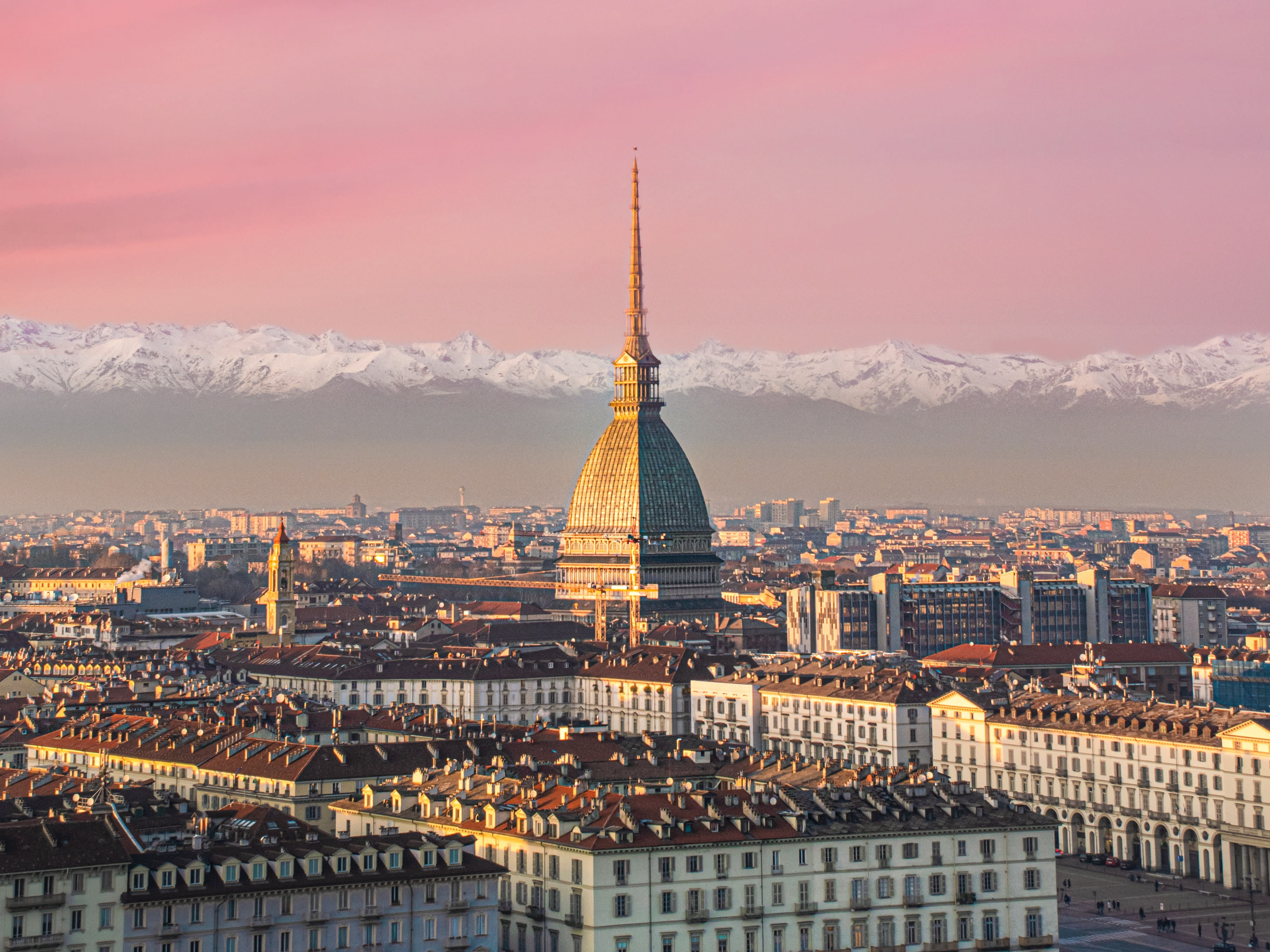Is Italy a good place to live? 12 pros and cons of living in Italy
Discover the pros and cons of living in Italy as an expat and decide whether you think Italy is a good place to live as an international.
Ellie
Living in Italy is a dream for many people. Gorgeous weather, amazing food, and stunning scenery are just a few of the things that make life in Italy so appealing. But before you book your flight, it's important to know some of the pros and cons of living in Italy to help you answer the question: Is Italy a good place to live? This way, you can be sure that living in Italy is the right decision for you. So, without further ado, let's look at the 12 pros and cons of living in Italy!
Pro: The La dolce vita lifestyle
The Italian lifestyle involves taking each day as it comes and embracing the amazing food and leisure activities Italy offers. From sports to opera, Italians know how to have fun while learning more about the culture that surrounds them.
Once you venture outside some of the popular Italian cities, you’ll quickly discover that Italy has some of the most beautiful scenery in the world. Whether you prefer endless rolling hills with vineyards as far as the eye can see or rugged seaside towns that embrace the natural beauty of the Italian coastline— Italy’s landscape has something for everyone.
Combining the love of food, appreciation for culture and heritage, and the natural beauty of Italy’s landscape, you’ll quickly learn that the “La dolce vita” lifestyle is dreamy to experience.

Con: Parle Italiano? If not, you'll need to learn
Learning Italian is a must for expats living in Italy. Many expats think you’ll get by with just English in Italy, but that’s not a great idea. While many Italians speak English well, learning Italian is crucial if you plan to live in Italy for a few months or more, especially if you venture into the countryside.
English literacy in Italy is lower in the south, so having some Italian is necessary if you plan to live in a city like Naples.
Big Italian cities like Rome and Milan have more accommodations in place for people who don’t speak Italian. However, showing some initiative to learn Italian will mean a lot to locals, and it’ll help you down the line if you decide to get permanent residency in Italy.
Language learning apps are a great way to learn Italian before you move there. We recommend the ItaliAmo and Duolingo apps to get you started!
Pro: Italian food is delicious
Italian cuisine is world-famous for a reason. There’re so many incredible dishes to choose from, each unique to a certain region of Italy. From the classic carbonara to the less familiar but no less delicious rabbit ragu, there's a dish for every mood when it comes to Italian food.
Food is almost like a religion in Italy, and eating is a ritual in itself. It’s common for Italians to go the extra mile to eat with their families during both lunch and dinner. This is an important aspect of work culture in Italy, as you’ll often have 2-to-3-hour-long lunch breaks, and your colleagues will leave the office just in time to make it home for dinner.
Food is so important in Italy that taking a potential business partner out for lunch is integral to building a sound business relationship!

Con: Living in a city can be pricey
One of the common problems expats have while living in major Italian cities is how expensive it is. Although the cost of living in Italy is generally pretty low, some cities have a higher cost of living than the national average.
Still, the cost of living in Rome and similar cities aren’t super high compared to other European cities. The best advice to manage the higher cost of living in these cities is to make sure you negotiate a good salary, check out our cost of living guide for your desired city, and create a budget for your expenses. You can use search alerts with HousingAnywhere to help you find a rental within your budget, and check out our guide for utilities in Italy so you know what to expect in terms of bills.
It’s often the case that tenants who don’t know their rights end up with extra charges for their accommodation, so you must make sure that you know your tenant rights before you start renting.
Pro: Healthcare won’t break the bank
The Italian healthcare system is one of the best in the world, and most services provided by public hospitals or practitioners are free of charge. There’re also plenty of private healthcare options in Italy, which tend to be a lot more expensive, but they’re available if you need them. Health insurance is mandatory for most non-EU citizens, but even health insurance is pretty affordable in Italy, whether you go private or public.
So, if you’re looking for quality healthcare and don’t want to break the bank, Italy is a great place to consider living in!
Make sure to choose the right health insurance to complement the public coverage you’ll receive as an Italian resident.
Con: Italian bureaucracy moves at a snail's pace
Bureaucracy in Italy can be frustrating when you live there as an expat. Whether you’re doing business, dealing with legal procedures or visa processes, the formal requirements change a lot, and you’ll need to get a lot of documents translated. You may also need an Italian legal consult with some of these processes.
Once you’ve overcome those hurdles, it’s likely that you’ll also encounter processing delays and long waiting times to have your documents reviewed. Finding additional information is tricky, and government offices may not be able to help you if you don’t speak Italian or have a companion who does.
The best way to deal with Italian bureaucracy is to get legal advice or support from an Italian who understands the processes and can assist you in Italian.
What else should you know about life in Italy?
With all of the main pros and cons of living in Italy laid out, we can’t miss out on a few extra essential bits of information about life in Italy for expats.
The job market is tough to enter
One of the biggest struggles you'll have as an expat is finding a job in Italy. Though the unemployment rate has recovered steadily since its lowest point in early 2022, finding work as a non-Italian speaker can be difficult.
As an expat, you’d have the highest chances of landing a well-paying job in cities where English literacy is higher. So if you want to live in Italy and be well paid without learning Italian, you’ll need to search homes for rent in Rome, Milan, Florence and Bologna. In these cities, there's more work available for English speakers, but you might still struggle without learning Italian.

Italians are friends for life
Italians' friendliness is just one aspect that makes it easy to settle into their culture. Once they’re close to someone, Italians are loyal and trustworthy toward them for the rest of their lives! If you are looking to make Italian friends, it's important to show that you are interested in them and their culture.
Watch out for dodgy drivers
If you’re driving in Italy, it's important to be aware of the dangers and drive safely. There’s a lot of congestion and aggressive drivers, and accidents are pretty common. Italian drivers aren’t used to sharing the road with cyclists and pedestrians, so keep that in mind as you navigate narrow streets in particular. If you plan to cycle, be sure to get the correct protective gear to keep you safe.
Italy is a historical goldmine
With so many historical sites dotted across Italy, it’s hard to know where to start exploring! Rome is full of ancient ruins, Florence is where you’ll find Renaissance architecture, Naples is home to classical art, and who can forget the iconic Venetian canals? If you’re a history nut, Italy is certainly a perfect place to live and embrace all that comes with Italian living.
So, is Italy a good place to live?
Yes, absolutely! Living in Italy as an expat allows you to enjoy some of the world's best food, culture and a laidback lifestyle. Sure, there’re some hurdles you’ll have to overcome like budgeting for the cost of living and dealing with the tedious bureacracy. But once you deal with them, you can settle into La dolce vita. It’ll all be worth it once you get your first bite of an authentic Italian pizza!
This article is for informational purposes only.
Please reach out to content @housinganywhere.com if you have any suggestions or questions about the content on this page. For legal advice or help with specific situations, we recommend you contact the appropriate authorities.
Related articles
In this article
Pro: The La dolce vita lifestyle
Con: Parle Italiano? If not, you'll need to learn
Pro: Italian food is delicious
Con: Living in a city can be pricey
Pro: Healthcare won’t break the bank
Con: Italian bureaucracy moves at a snail's pace
What else should you know about life in Italy?
So, is Italy a good place to live?
Moving to Italy?
Book your rental accommodation from verified landlords in Italy even before relocating. No viewings needed.
Search Now

